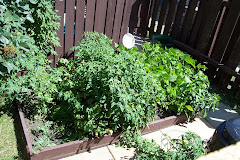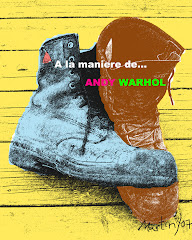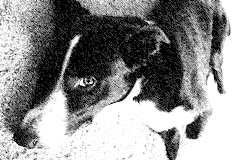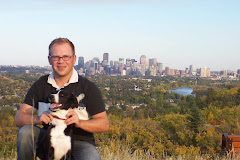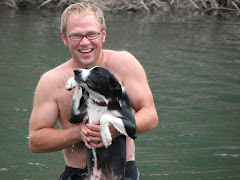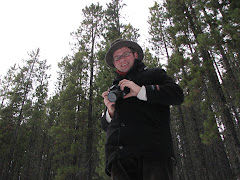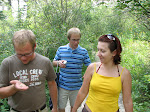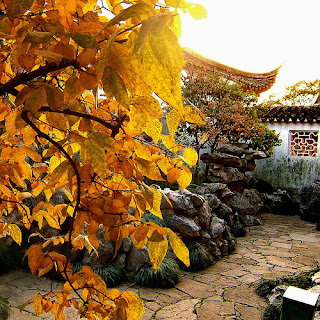 The weekend that followed the EAP placement week, my friends Delia, Gabi, Marie, and I, went to
The weekend that followed the EAP placement week, my friends Delia, Gabi, Marie, and I, went to Monday, February 25, 2008
Chinese Gardens
 The weekend that followed the EAP placement week, my friends Delia, Gabi, Marie, and I, went to
The weekend that followed the EAP placement week, my friends Delia, Gabi, Marie, and I, went to Wednesday, February 13, 2008
Dreams...
 In my opinion, dreaming is very good for people's global health because it allows the dreamer to express repressed comportments which are normally prohibited by society or by our conscience. Yesterday I dreamed that I was smoking again but it has been almost four years since I quit. The cigarette was good though, and I didn't seem bother by the fact that it has been a nightmare for me to quit. Except that when I woke up, I felt terribly guilty because I really thought that I was addicted again. That is to say that cigarette dependence has a very strong effect and that my brain is still drawn by nicotine. Moreover after reading an article on black and white and color dreams, I tried to observe my own dreams and discovered that they are mostly in color. I wish I could remember the dreams that I had back when I was baby because by looking at this picture, I think that they are the most beautiful ones. The word "dreams" evoke many images in my mind such as goals that everyone of us tries to achieve in his or her life. One of my dream is to own a land covered with trees, with my house built on it and with some horses that I can ride... Another one is to pass the EAP program and stay alive! But my biggest ambition is to reach happiness and be proud of what I've achieve during my life.
In my opinion, dreaming is very good for people's global health because it allows the dreamer to express repressed comportments which are normally prohibited by society or by our conscience. Yesterday I dreamed that I was smoking again but it has been almost four years since I quit. The cigarette was good though, and I didn't seem bother by the fact that it has been a nightmare for me to quit. Except that when I woke up, I felt terribly guilty because I really thought that I was addicted again. That is to say that cigarette dependence has a very strong effect and that my brain is still drawn by nicotine. Moreover after reading an article on black and white and color dreams, I tried to observe my own dreams and discovered that they are mostly in color. I wish I could remember the dreams that I had back when I was baby because by looking at this picture, I think that they are the most beautiful ones. The word "dreams" evoke many images in my mind such as goals that everyone of us tries to achieve in his or her life. One of my dream is to own a land covered with trees, with my house built on it and with some horses that I can ride... Another one is to pass the EAP program and stay alive! But my biggest ambition is to reach happiness and be proud of what I've achieve during my life.
Sunday, February 10, 2008
Explorer
 Explorer is a word that can take almost indefinite meanings. Everybody is an explorer in his or her own way. An explorer can be a man or a woman who explore for the first time each other's body while making love. An explorer can be the child who makes its first steps to reach his or her mother's hand. I really like this word because it invokes my imagination process which can generate a world of meanings. In French we say: "UNE IMAGE VAUT MILLE MOTS!" which can be translated in English as:"AN IMAGE IS A THOUSAND WORDS!". Now I just realized that I can reverse it if I want to built a richer meaning for every word I met: "A WORD IS A THOUSAND STORIES!" And this is also a way to interpret the meaning of the word explorer which hides a thousand stories. I like the concept of an iceberg; your first perception of a word is only superficial. Your imagination is the diver who goes deep under the water to explore the hidden part of the iceword and that's how one can really learn a language.
Explorer is a word that can take almost indefinite meanings. Everybody is an explorer in his or her own way. An explorer can be a man or a woman who explore for the first time each other's body while making love. An explorer can be the child who makes its first steps to reach his or her mother's hand. I really like this word because it invokes my imagination process which can generate a world of meanings. In French we say: "UNE IMAGE VAUT MILLE MOTS!" which can be translated in English as:"AN IMAGE IS A THOUSAND WORDS!". Now I just realized that I can reverse it if I want to built a richer meaning for every word I met: "A WORD IS A THOUSAND STORIES!" And this is also a way to interpret the meaning of the word explorer which hides a thousand stories. I like the concept of an iceberg; your first perception of a word is only superficial. Your imagination is the diver who goes deep under the water to explore the hidden part of the iceword and that's how one can really learn a language.
Saturday, February 9, 2008
Carl Sagan's Cosmos (reedited)
 The space explorers and the earth explorers are the two groups of travelers presented in Carl Sagan’s documentary. The first group presented was the Voyager probes or spacecrafts, sent into space in the late 20th century to collect information about the outer space. The second group was the ship navigators of the17thcentury, which traveled the world and helped map our planet. The similarities between these explorers are quite impressive: both carried messages to unknown civilizations, both traveled to unknown worlds, and both made scientists reflect on their discoveries. However, they differ in many respects: one is powered by nuclear energy, while the other by wind; one is inhabited by men, while the other is not; one travels at a very high speed, while the other goes relatively slow.
The space explorers and the earth explorers are the two groups of travelers presented in Carl Sagan’s documentary. The first group presented was the Voyager probes or spacecrafts, sent into space in the late 20th century to collect information about the outer space. The second group was the ship navigators of the17thcentury, which traveled the world and helped map our planet. The similarities between these explorers are quite impressive: both carried messages to unknown civilizations, both traveled to unknown worlds, and both made scientists reflect on their discoveries. However, they differ in many respects: one is powered by nuclear energy, while the other by wind; one is inhabited by men, while the other is not; one travels at a very high speed, while the other goes relatively slow.In the 17th century,
Saturday, February 2, 2008
Comments on Editing Experience
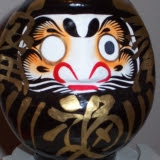 I would say that editing is absolutely essential for any good creator in general. Whether it is for a painter, an author, or a designer, etc., everyone who wants to come with a good work, must confront it to other points of view to see if it is solid. That is why good critics are important to accept to improve one’s skills. Writing is among the most important exercises where editing is needed because the author want to be sure that his or her message is clearly understood, backed by strong and distinct arguments, and if it’s free of grammatical errors. Like if we take the example of a teacher who prepares a test, he will ask his or her colleagues their opinions to see if the students will get the questions in the right way or if there is any ambiguity in it. This is especially important if the instructor does not want a student line up in front of his or her office. The writer wants to have strong, distinct supporting ideas to convince the readers. Writing the same idea twice but in different words is a frequent mistake for beginners and editing is the best tool to correct it. Providing a fresh perspective, the editors will see mistakes that the author does not see anymore because he or she has been absorbed in it for too long. Finally, but of the uttermost importance, accepting thankfully and positively the critics make the editing experience a very constructive one.
I would say that editing is absolutely essential for any good creator in general. Whether it is for a painter, an author, or a designer, etc., everyone who wants to come with a good work, must confront it to other points of view to see if it is solid. That is why good critics are important to accept to improve one’s skills. Writing is among the most important exercises where editing is needed because the author want to be sure that his or her message is clearly understood, backed by strong and distinct arguments, and if it’s free of grammatical errors. Like if we take the example of a teacher who prepares a test, he will ask his or her colleagues their opinions to see if the students will get the questions in the right way or if there is any ambiguity in it. This is especially important if the instructor does not want a student line up in front of his or her office. The writer wants to have strong, distinct supporting ideas to convince the readers. Writing the same idea twice but in different words is a frequent mistake for beginners and editing is the best tool to correct it. Providing a fresh perspective, the editors will see mistakes that the author does not see anymore because he or she has been absorbed in it for too long. Finally, but of the uttermost importance, accepting thankfully and positively the critics make the editing experience a very constructive one.
Subscribe to:
Comments (Atom)
.jpg)
